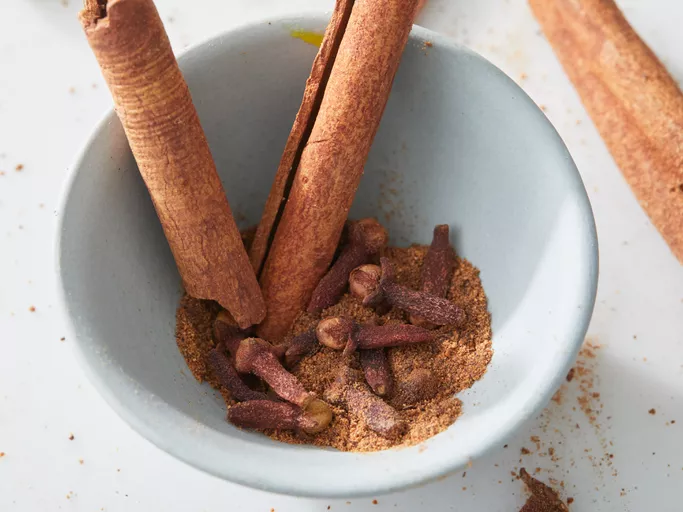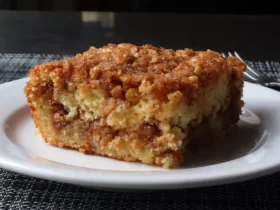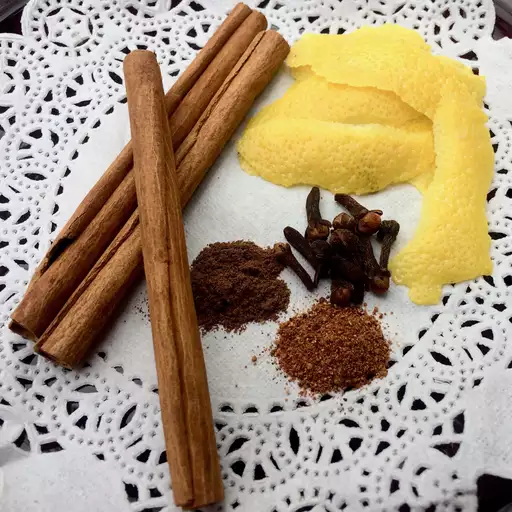Choosing the Right Mulling Spices
Selecting Traditional Spices
Mulling spices have been a staple in traditional cider recipes for centuries, adding depth and warmth to this delicious beverage. When selecting the right mulling spices, it’s essential to choose a blend that complements the flavors of your apple cider while providing the perfect balance of aromas and spices.
To begin with, you’ll want to consider using traditional spices that are commonly associated with mulled cider, such as cinnamon sticks, cloves, and nutmeg. Cinnamon is an excellent choice, as it adds a sweet and spicy flavor to your cider without overpowering it. Opt for high-quality cinnamon sticks with visible oil droplets on the surface – these are signs of good quality.
Cloves are another essential spice in traditional mulled cider recipes. These small, dried flower buds pack a punch when it comes to adding depth and warmth to your beverage. Look for whole cloves that have not been pre-ground, as they will retain their flavor and aroma better than ground spices. You can use either black or green cloves – both work equally well in mulled cider.
Nutmeg is yet another critical spice to include in your mulling blend. This aromatic spice adds a warm, slightly sweet flavor that complements the apple flavors perfectly. Opt for high-quality whole nutmeg seeds rather than pre-ground spices, as they will retain their potency and flavor longer. Grate or grate a small amount of nutmeg directly over your cider while it’s simmering to release its full flavor.
Other spices you may want to consider adding to your mulling blend include allspice, ginger, and cardamom. Allspice has a warm, slightly sweet flavor that pairs well with cinnamon and nutmeg. Grind the whole berries to release their flavor and aroma. Ginger adds a spicy warmth to your mulled cider – use fresh or dried ginger root according to personal preference. Cardamom is an aromatic spice with a unique flavor profile – it’s perfect for adding a hint of sweetness without overpowering other flavors.
When selecting mulling spices, avoid using pre-mixed blends that may contain added preservatives or artificial flavor enhancers. These can alter the flavor and aroma of your mulled cider in undesirable ways. Opt instead for high-quality whole spices – these will give you more control over the final flavor profile of your beverage.
Finally, don’t forget to adjust the quantities of each spice according to personal taste preferences. Some people prefer a stronger cinnamon or nutmeg flavor, while others may prefer a balanced blend of spices. Experiment with different combinations and ratios until you find the perfect balance for your mulled cider recipe.
In conclusion, selecting the right mulling spices is crucial in achieving the perfect balance of flavors in your mulled cider recipe. By choosing traditional spices like cinnamon sticks, cloves, nutmeg, allspice, ginger, and cardamom, and using whole rather than pre-ground spices, you’ll create a delicious beverage that’s sure to please even the most discerning palate.
Cinnamon is a classic choice for mulled cider, but consider adding other spices like ginger, nutmeg, or allspice to create unique flavor profiles
Mulling spices add a warm and inviting aroma to hot cider, making it perfect for chilly fall evenings.
Cinnamon is a classic choice for mulled cider, but consider adding other spices like Ginger, Nutmeg, or Allspice to create unique flavor profiles.
Cinnamon is a staple spice in many cuisines and pairs well with the sweetness of apples. It adds a warm, comforting flavor that’s perfect for the fall season.
Ginger adds a spicy kick to mulled cider, which complements the sweetness of the apples. Use fresh or dried ginger, depending on your preference.
Nutmeg has a slightly bitter and nutty flavor that pairs well with cinnamon. Add it in moderation as its flavor can quickly overpower the other spices.
Allspice, also known as Pimento, has a sweet, spicy, and herbal flavor. It’s often used to add depth and warmth to mulled cider without overpowering the other flavors.
When choosing mulling spices for your cider recipe, consider the type of apples you’re using and the desired level of spiciness. You can also experiment with different spice combinations to create unique flavors:
- Cinnamon-Ginger: A classic combination that adds warmth and a hint of spice.
- Nutmeg-Allspice: A warm and aromatic blend that’s perfect for cold winter nights.
- Ginger-Clove: A spicy and invigorating mix that pairs well with sweeter apples.
Remember, the key to creating a great mulled cider is to experiment and find the perfect balance of spices. Start with small amounts and adjust to taste, as you can always add more spice but it’s harder to remove excess spice from the mixture.
The University of Michigan notes that cinnamon has antiinflammatory properties, making it an excellent addition to your cider recipe
- When it comes to choosing the right mulling spices for your cider recipe, there are several factors to consider.
- First and foremost, you’ll want to think about the flavor profile you’re aiming for.
- Do you prefer a warm and spicy blend, or something more subtle and aromatic?
- Mulling spices come in a variety of combinations, so it’s essential to choose ones that complement your taste buds.
Here are some popular options:
Cinnamon
The University of Michigan notes that cinnamon has anti-inflammatory properties, making it an excellent addition to your cider recipe. It adds a warm and comforting flavor that pairs well with apples.
Nutmeg
This spice has a distinctively nutty flavor and is often used in mulling spices blends. It’s particularly popular during the holiday season, as it evokes feelings of warmth and coziness.
Cardamom
With its unique blend of sweet and spicy flavors, cardamom adds an exotic twist to your cider recipe. It pairs well with apples and is a common ingredient in many Middle Eastern and Indian dishes.
Allspice
As the name suggests, allspice has a warm and spicy flavor that’s similar to cinnamon but also slightly sweet. It’s often used in baking and is a staple in Caribbean cuisine.
When selecting mulling spices, you may also want to consider their individual ingredients.
For example:
Cinnamon sticks
These are made from the bark of the cinnamon tree and can be used whole or ground. They have a more delicate flavor than ground cinnamon powder.
Ground spices
- These are often cheaper than their whole counterparts and are easier to store. However, they may lose some of their potency over time.
- No matter which mulling spices you choose, be sure to use them in moderation.
- A little goes a long way, especially when it comes to strong spices like cinnamon and nutmeg.
Mulling Spice Combinations
Creative Blends and Traditions
Mulling spices have been used for centuries to add warmth and depth to cider, and their blends can vary greatly depending on regional traditions and personal preferences. In this article, we’ll explore some classic mulling spice combinations and creative twists that you can try in your own cider recipes.
Classic Mulling Spice Combinations:
The most traditional and widely used mulling spices include cinnamon, nutmeg, cloves, allspice, and ginger. These warm, aromatic spices complement the sweetness of apple cider perfectly and evoke a sense of coziness on a cold winter’s night.
Cinnamon is often the dominant spice in mulling blends, adding a sweet and comforting flavor to the cider. Nutmeg adds a slightly bitter and nutty note, while cloves provide a warm, slightly sweet, and spicy kick. Allspice contributes a sweet, slightly spicy, and herbal flavor, and ginger adds a spicy warmth.
Creative Mulling Spice Blends:
While traditional mulling spices are delicious on their own, many people enjoy experimenting with new and unique blends to add excitement to their cider recipes. Some popular creative combinations include:
- Apple Pie Spice: This blend combines cinnamon, nutmeg, ginger, allspice, and a hint of cardamom to evoke the flavors of freshly baked apple pie.
- Spiced Cranberry: This blend pairs traditional mulling spices with dried cranberries and orange zest for a festive and fruity twist on classic cider.
- Warm Gingerbread: This blend combines cinnamon, ginger, nutmeg, allspice, and a hint of black pepper to evoke the warm, spicy flavors of gingerbread cookies.
Regional Traditions:
Mulling spices have been used for centuries in various forms and traditions around the world. In some European countries, such as Germany and Austria, mulled wine is a popular winter tradition, often made with red wine and a blend of spices including cinnamon, cloves, and allspice.
In the United Kingdom, mulled cider is a staple at Christmas markets and festive gatherings, often served in steaming cups along with traditional mince pies and gingerbread. The British commonly use a mulling spice blend that includes cinnamon, nutmeg, ginger, and allspice to create a warm and comforting drink.
Experimenting with different mulling spice combinations can add excitement and variety to your cider recipes. Whether you prefer classic traditions or creative twists, there’s sure to be a mulling spice blend out there for everyone to enjoy.
For a traditional English style mulled cider, try combining cinnamon sticks with a few cloves and a pinch of nutmeg
Crafting the perfect mulled cider spice combination can elevate this winter warmer to new heights. When it comes to traditional English-style mulling, there are several key spices that come together to create a harmonious blend.
At its core, a classic English mulled cider combines cinnamon sticks, which add warmth and depth of flavor. These aromatic sticks infuse the cider with the unmistakable scent of cinnamon, transporting you straight to the heart of England’s winter wonderlands.
To complement the dominant sweetness of the cinnamon, a few whole cloves are added to the mix. The pungency and slight bitterness of cloves balance out the richness of the cider, creating a more complex flavor profile.
Nutmeg, with its subtle yet distinct earthy undertones, is often used in combination with cinnamon and cloves for an authentic English mulled cider experience. A pinch of nutmeg enhances the spices’ synergy without overpowering them.
If you prefer a more intense spice blend, consider experimenting with these variations:
- Cinnamon sticks and ground ginger: For an added warmth and zest in your mulled cider
- Cloves, star anise, and a pinch of salt: For a more aromatic and slightly savory flavor profile
- Cardamom pods and a drizzle of honey: For an exotic twist with the addition of sweet cardamom
Keep in mind that you can adjust the proportions to your taste. Feel free to add other spices, herbs, or citrus elements according to your personal preferences.
When combining spices, remember to store them in a dry place and away from direct sunlight to preserve their aromatic properties. Freshly ground spices will always produce better results than stale ones.
In the UK, you can find specific guidelines for mulling spices from the National Farmers’ Retail and Markets Association
The art of creating the perfect mulling spice combination is a crucial aspect of crafting exceptional cider recipes. In the UK, the National Farmers’ Retail and Markets Association provides specific guidelines for mulling spices in English, ensuring that enthusiasts can access accurate information to elevate their culinary skills.
When it comes to mulling spices for cider, the traditional blend often consists of a combination of cinnamon sticks, cloves, and nutmeg. These aromatic ingredients are staples in most mulling spice mixes due to their complementary flavors and fragrances. The warm, spicy notes of cinnamon evoke feelings of coziness, while cloves contribute a subtle depth and richness to the brew.
Nutmeg adds a sweet, slightly bitter undertone that balances out the spiciness of the other ingredients. This classic trio provides a solid foundation for crafting an exceptional mulling spice blend. However, adventurous cider enthusiasts may want to experiment with additional spices to create unique flavor profiles and aromas.
One way to enhance the traditional mulling spice mix is by incorporating citrus elements. Orange or lemon peel can add a bright, citrusy note that complements the warm spices. Similarly, ginger adds a spicy kick and aromatic quality that pairs well with cinnamon and cloves. Star anise provides a distinct licorice flavor and fragrance, while allspice contributes a sweet, spicy taste reminiscent of nutmeg.
Other spices, such as cardamom, black pepper, or coriander, can also be added to create complex and intriguing flavor profiles. It’s essential to remember that when working with mulling spices, less is often more. Experimenting with different spice combinations allows you to find the perfect balance of flavors for your cider recipe.
The art of crafting an exceptional mulling spice blend requires patience, experimentation, and a willingness to adjust the proportions of each ingredient until you achieve the desired flavor profile. For those in the UK seeking expert advice on mulling spices, consulting the National Farmers’ Retail and Markets Association guidelines provides valuable insights and practical tips.
Ultimately, mastering the art of mulling spice combinations is a process that allows enthusiasts to tap into their creative potential and craft truly exceptional cider recipes that showcase their unique flavor profiles. By exploring different spice combinations, experimenting with various ingredients, and paying attention to proportions, you can unlock new dimensions of flavor and aroma in your mulling spices for cider.
Tips for Using Mulling Spices
Infusion Methods and Safety Precautions
Mulling spices are a blend of aromatic spices used to flavor hot beverages, particularly cider and mulled wine, during the colder months. Using mulling spices effectively requires understanding their infusion methods and taking necessary safety precautions.
To use mulligates spices correctly, start by selecting the right type of cider for mulling. Choose a dry or semi-dry cider with minimal residual sugar, as it will better balance the sweetness from the spices.
Next, prepare your mulling spices according to the recipe. A traditional mix consists of cinnamon sticks, cloves, allspice berries, and sometimes nutmeg. You can adjust the proportions to suit your taste preferences. For a more robust flavor, increase the number of spices or add other aromatic ingredients like star anise, ginger, or citrus peels.
When infusing mulling spices into cider, consider the heat method. One way is to simmer the cider with spices on low heat for 20-30 minutes, allowing the flavors to meld and intensify. Alternatively, you can use a slow cooker to infuse the spices over an extended period, typically 2-4 hours.
Another popular method is mulling without heat, where spices are left to steep in the cider at room temperature for several hours or overnight. This approach is ideal for delicate flavor profiles and preserves the original characteristics of the cider.
Avoid using boiling water when making a hot mulligan, as it can cause the spices to burn and release bitter compounds. Instead, heat the cider gently by placing the pot over low heat or warming it in the oven at 150°F (65°C). This way, you can maintain the desired temperature while preventing scorching.
When selecting a mulling spice blend, make sure it’s free of artificial additives and preservatives. Choose organic options or create your own mix using whole spices to ensure authenticity and control over the flavors. Always store mulling spices in a cool, dry place to preserve their potency and aroma.
Pregnant women should exercise caution when consuming mulling spices due to potential interactions with certain medications or exacerbating underlying health conditions. If you have specific concerns or allergies, consult with your healthcare provider before incorporating these spices into your diet.
When using whole spices, consider infusing them in a cheesecloth or a tea bag to avoid straining the liquid
The art of using mulling spices lies not only in the selection of the right spices, but also in the techniques employed to extract their flavors and aromas into your cider or other beverages.
When it comes to whole spices, consider infusing them in a cheesecloth or a tea bag. This method is particularly useful for spices like cinnamon sticks, cloves, and ginger slices that can be cumbersome to strain out of the liquid with a fine-mesh sieve or cheesecloth.
Place your mulling spices inside the cheesecloth or tea bag and tie it securely with string to create a loose bundle. This will prevent any whole spices from escaping during infusion and make straining a breeze once you’ve added the spices to your cider.
Another tip when working with whole spices is to use the right amount for the quantity of liquid you’re mulling. A general rule of thumb is to start with about 1/4 teaspoon of ground spice per quart of cider or other liquid, adjusting to taste as needed.
Some spices like cinnamon and nutmeg are best used in small quantities to avoid overpowering the flavor of your cider, while others like ginger and cloves can be added in more generous amounts for a bolder flavor profile.
It’s also worth noting that the ratio of spices to liquid can vary depending on the type of cider or beverage you’re making. For example, if you’re mulling wine or beer, you may want to use fewer spices than if you were mulling apple cider.
Avoid overcrowding your cheesecloth or tea bag with too many spices at once, as this can lead to uneven extraction and flavor inconsistencies in your finished product. Instead, add the spices gradually and allow each infusion to complete before adding the next batch of spices.
When straining out your mulling spices from the liquid, be gentle to avoid bruising or damaging the delicate flavors and aromas you’ve worked so hard to extract. This is especially important when working with expensive ingredients like wine or rare spices.
Finally, don’t be afraid to experiment and adjust your mulling spice blend to suit your personal taste preferences. Some people prefer a stronger or sweeter flavor profile in their cider, while others enjoy the subtle warmth of certain spices.
By following these tips and experimenting with different spices and techniques, you’ll be well on your way to creating deliciously complex and aromatic mullings that will elevate any beverage to new heights!
Always heat your mulled cider to a safe temperature to prevent the growth of bacteria and other pathogens
The art of mulling spices has been a beloved tradition for centuries, and when used correctly, it can elevate your mulled cider to new heights.
When working with mulling spices, there are several tips to keep in mind to ensure that your cider is safe to drink and delicious:
Temperature Control
Always heat your mulled cider to a safe temperature to prevent the growth of bacteria and other pathogens. The ideal temperature for serving mulled cider is between 140°F and 160°F (60°C to 71°C).
- Use a thermometer to monitor the temperature of your mulled cider.
- Keep the cider warm, but not boiling, as this can cause the flavors to become bitter and unpleasant.
- Avoid serving mulled cider that has been at room temperature for an extended period, as bacteria can grow rapidly in temperatures between 40°F and 140°F (4°C to 60°C).
Mulling Spices
When selecting mulling spices, choose a blend that complements the flavor of your cider. Some popular options include:
- Cinnamon: adds warmth and depth to the cider
- Nutmeg: adds a subtle sweetness and nutty flavor
- Ginger: adds a spicy and invigorating flavor
- Cardamom: adds a sweet and herbal flavor
Pouring Techniques
The way you pour your mulled cider can also affect the flavor and temperature of the drink. Here are some tips to keep in mind:
- Use a decanter or large pitcher to serve the mulled cider, as this allows for easy pouring and keeps the cider at a consistent temperature.
- Pour the cider slowly and evenly to prevent splashing and spills.
Maintaining Flavor and Aroma
To maintain the flavor and aroma of your mulled cider, consider the following tips:
- Use fresh mulling spices: Old or stale spices can impart a bitter or unpleasant flavor to the cider. Replace your mulling spice blend regularly to ensure optimal flavor.
- Add aromatics: Onions, cloves, and star anise are popular aromatics that add depth and complexity to mulled cider. Add them to the pot during the simmering process for added flavor.
- Experiment with spices: Don’t be afraid to try new and unique spice blends or individual spices to create a signature flavor for your mulled cider.
- Serve with care: Be mindful of the temperature and pouring technique when serving your mulled cider. This ensures that the drink remains safe to consume and enjoyable to drink.
Additional Tips
Here are some additional tips for creating a perfect cup of mulled cider:
- Use high-quality ingredients: Choose fresh, ripe apples and high-quality spices to ensure the best flavor possible.
- Simmer slowly: Simmering the cider at a low temperature for an extended period allows for maximum extraction of flavors and aromas.
- Strain carefully: Strain the mulled cider before serving to remove any spices or sediment that may have settled to the bottom of the pot.
By following these tips, you can create a delicious and safe cup of mulled cider that is sure to please even the most discerning palate.
- Best LeadsGorilla Alternatives for 2025 - April 22, 2025
- Best Leadzai Alternatives for 2025 - April 22, 2025
- Best LeadSwift Alternatives for 2025 - April 21, 2025











